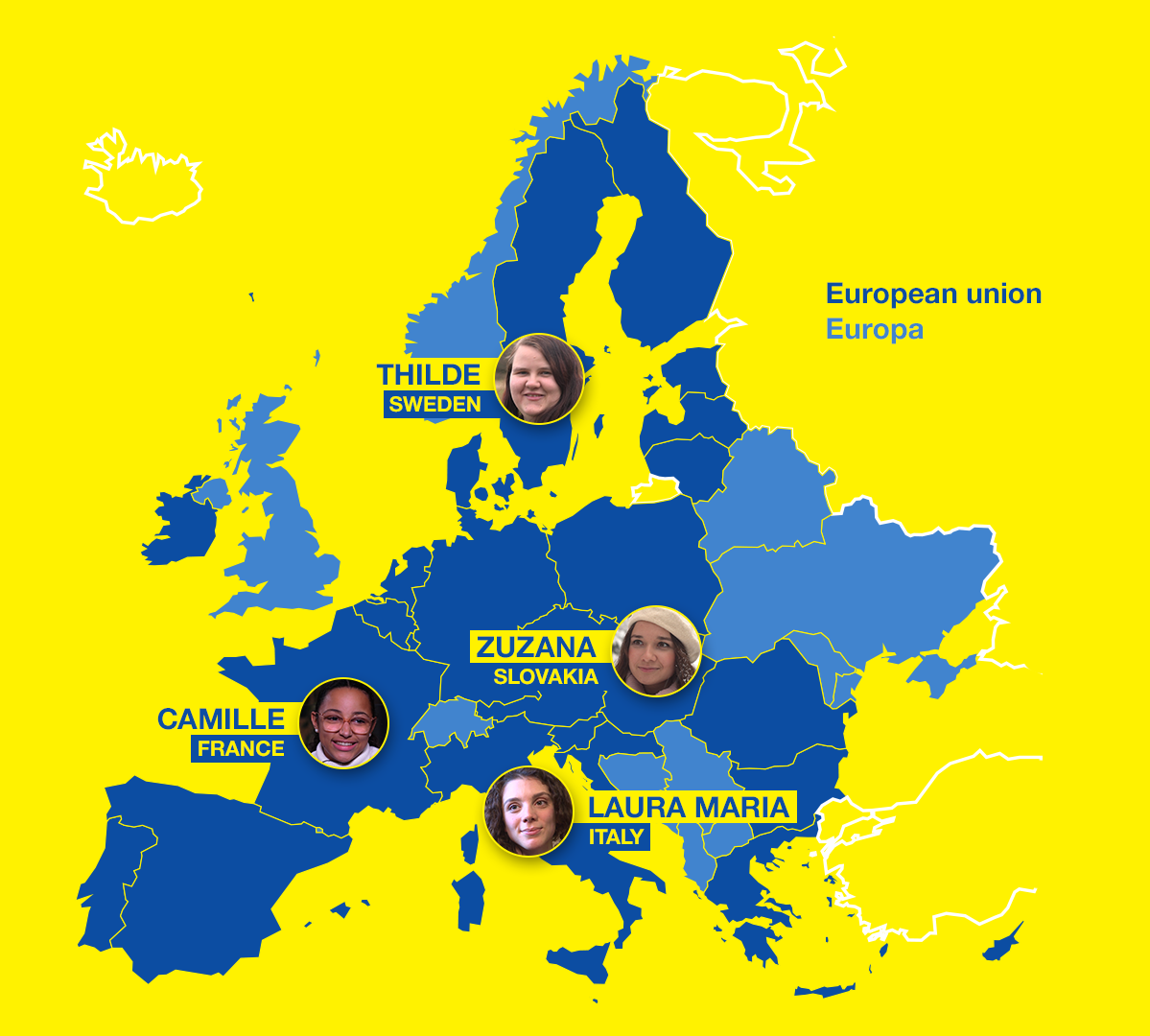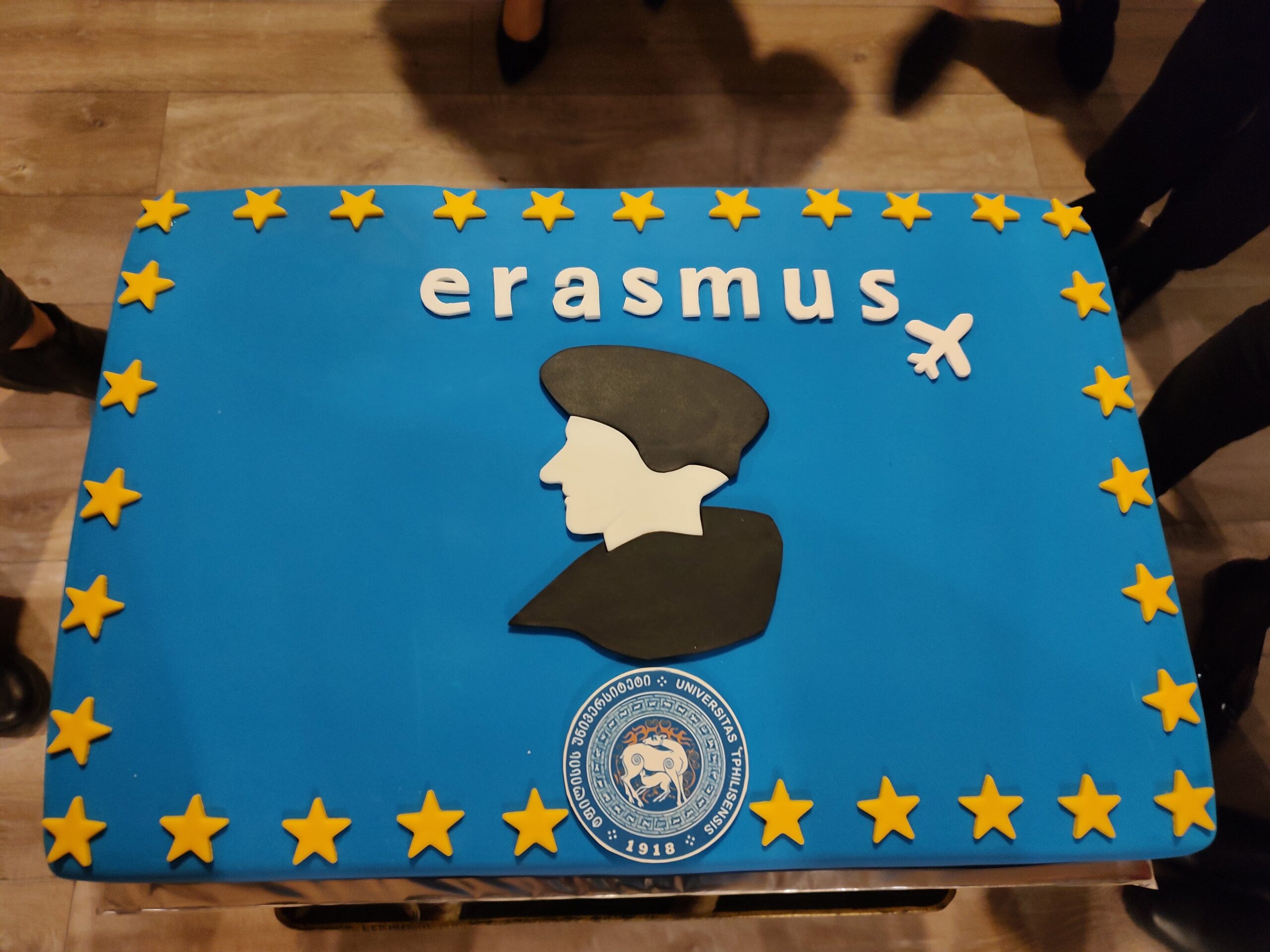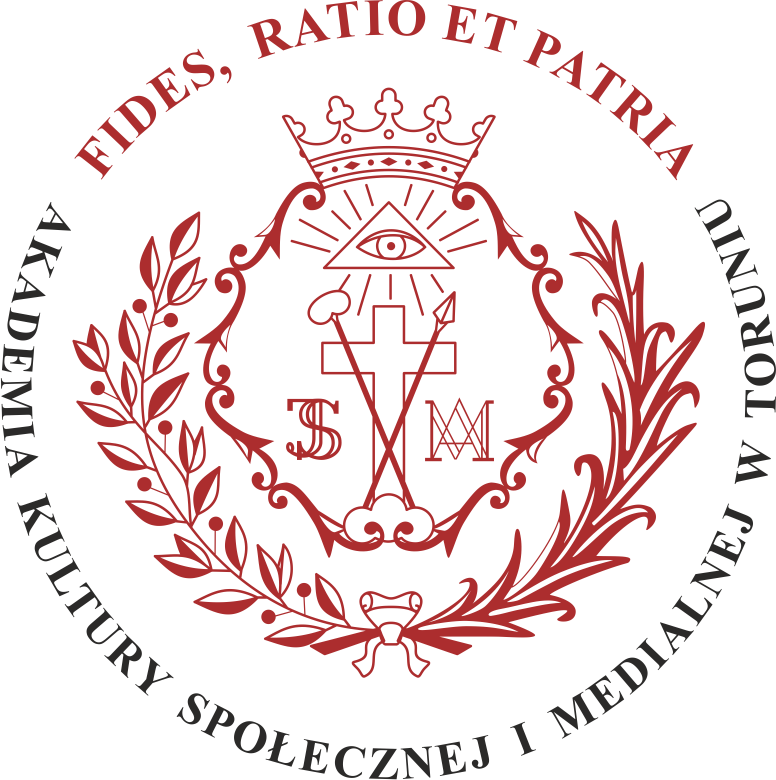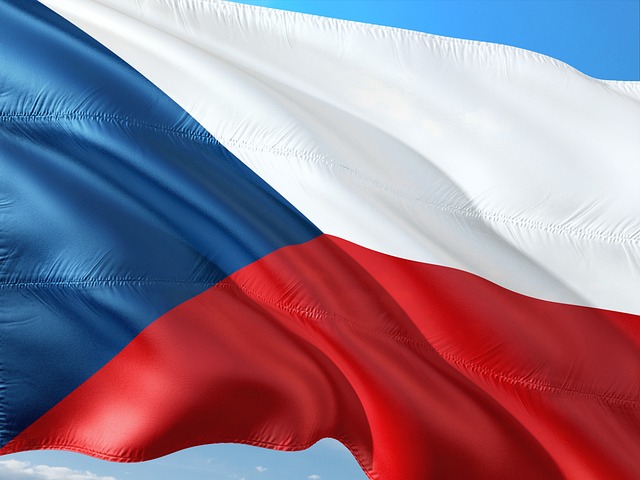What is the path forward for the European Union? It’s a complicated question and an ambitious project given to 800 participants from all 27 EU countries as part of the EU’s Conference on the Future of Europe. Since May 2021, the conference has been tasked with pitching ideas to European leaders about how the EU should function – and FRANCE 24 was there, every step of the way. It is an unprecedented exercise in participatory democracy, giving European citizens a chance to make their voices heard and get their concerns addressed. Check out futureeu.europa.eu for more info.
Roughly a third of the 800 participants are under 25 – and FRANCE 24 interviewed four of them. We wanted to know what they want from the EU and how they think the conference can change Europe. Their priorities reflect the pressing issues facing Europe today: climate change, healthcare and migration.

Our web documentary includes interviews with Camille, Thilde, Zuzana and Laura Maria as they outline their aspirations for getting Europe to address the environment, Euroscepticism, borders and the aftermath of the pandemic.
THILDE
PROTECTING THE ENVIRONMENT TO PROTECT EUROPE’S FUTURE
Thilde lives in the Swedish village of Fågelmara in the municipality of Karlskrona, a UNESCO-listed port. It is in the south of the country – the nearest capital city isn’t Stockholm but Copenhagen. Located on the Baltic Sea, the region is closely linked to Poland, Lithuania, Estonia and Latvia – and Russia isn’t very far away.
Sweden is the EU’s third-largest country by size, but it is also one of the least densely populated. There are around 10 million inhabitants.
 Sweden joined the EU on January 1, 1995, on the same day as Finland and Austria, becoming the bloc’s 15th member state. Joining the EU followed a nationwide referendum in November 1994 that approved membership by 52.2 percent.
Sweden joined the EU on January 1, 1995, on the same day as Finland and Austria, becoming the bloc’s 15th member state. Joining the EU followed a nationwide referendum in November 1994 that approved membership by 52.2 percent.
 Sweden did not join the Eurozone and it continues to use its own currency, the Swedish Kroner (SEK). That was the result of another referendum, this time in 2005, which rejected joining the single currency by 56.1 percent.
Sweden did not join the Eurozone and it continues to use its own currency, the Swedish Kroner (SEK). That was the result of another referendum, this time in 2005, which rejected joining the single currency by 56.1 percent.
 Despite its close proximity to Russia, Sweden, just like Finland, has never joined NATO. However, public opinion on the question has changed significantly in the wake of the Russian invasion of Ukraine.
Despite its close proximity to Russia, Sweden, just like Finland, has never joined NATO. However, public opinion on the question has changed significantly in the wake of the Russian invasion of Ukraine.
Thilde is 22 years old. She lives on the family farm near the city of Karlskrona in southern Sweden. Her country is directly affected by climate change: Sweden suffered its worst wildfires in modern history in July 2018. Around 25,000 hectares of forest were destroyed in the unprecedented blazes. The EU intervened to help douse the flames, but for many the fires left a lasting scar on the landscape and in their memories. They also accelerated an increase in awareness: Now, the environment is the number one concern in the country.
For Thilde, there is no time to lose: The time for talking is over, now it is time for action – before it’s too late.
When she was first contacted to participate in the Conference on the Future of Europe, Thilde wasn’t sure she was the right person. But she saw it as an opportunity to raise issues that she feels could have an impact, such as the development of public transport in rural areas to reduce car usage and carbon emissions. That’s a crucial question in large but sparsely populated Sweden.
Thilde’s proposal was adopted, and will feature as one of the conference’s recommendations. The conference has also helped Thilde better understand the priorities of other Europeans, such as those who live in urban areas.
Little by little, Thilde has grown in confidence and broadened her horizons during the conference
Please find more: https://webdoc.france24.com/cofoe-citizens-future-of-europe-france-24-indepth-coverage/


 Sweden joined the EU on January 1, 1995, on the same day as Finland and Austria, becoming the bloc’s 15th member state. Joining the EU followed a nationwide referendum in November 1994 that approved membership by 52.2 percent.
Sweden joined the EU on January 1, 1995, on the same day as Finland and Austria, becoming the bloc’s 15th member state. Joining the EU followed a nationwide referendum in November 1994 that approved membership by 52.2 percent. Sweden did not join the Eurozone and it continues to use its own currency, the Swedish Kroner (SEK). That was the result of another referendum, this time in 2005, which rejected joining the single currency by 56.1 percent.
Sweden did not join the Eurozone and it continues to use its own currency, the Swedish Kroner (SEK). That was the result of another referendum, this time in 2005, which rejected joining the single currency by 56.1 percent. Despite its close proximity to Russia, Sweden, just like Finland, has never joined NATO. However, public opinion on the question has changed significantly in the wake of the Russian invasion of Ukraine.
Despite its close proximity to Russia, Sweden, just like Finland, has never joined NATO. However, public opinion on the question has changed significantly in the wake of the Russian invasion of Ukraine.







Dear Anastasia, the power of youth is limitless!
European young people are our future and it is so important that we give them appropriate value. For this reason, we are working hard on RIPEC project: for supporting them in getting the most from their Erasmus experience, even in times of crisis.
… [Trackback]
[…] Read More on to that Topic: ripec-project.eu/discussion/rethinking-the-eu-the-young-europeans-reshaping-a-continent/ […]
… [Trackback]
[…] Read More Info here on that Topic: ripec-project.eu/discussion/rethinking-the-eu-the-young-europeans-reshaping-a-continent/ […]
… [Trackback]
[…] Find More Info here on that Topic: ripec-project.eu/discussion/rethinking-the-eu-the-young-europeans-reshaping-a-continent/ […]
… [Trackback]
[…] Here you will find 22021 more Information on that Topic: ripec-project.eu/discussion/rethinking-the-eu-the-young-europeans-reshaping-a-continent/ […]
… [Trackback]
[…] Info on that Topic: ripec-project.eu/discussion/rethinking-the-eu-the-young-europeans-reshaping-a-continent/ […]
… [Trackback]
[…] Find More here to that Topic: ripec-project.eu/discussion/rethinking-the-eu-the-young-europeans-reshaping-a-continent/ […]
… [Trackback]
[…] Find More here on that Topic: ripec-project.eu/discussion/rethinking-the-eu-the-young-europeans-reshaping-a-continent/ […]
… [Trackback]
[…] There you will find 68949 more Info on that Topic: ripec-project.eu/discussion/rethinking-the-eu-the-young-europeans-reshaping-a-continent/ […]
… [Trackback]
[…] Read More on that Topic: ripec-project.eu/discussion/rethinking-the-eu-the-young-europeans-reshaping-a-continent/ […]
… [Trackback]
[…] Read More on on that Topic: ripec-project.eu/discussion/rethinking-the-eu-the-young-europeans-reshaping-a-continent/ […]
… [Trackback]
[…] Info on that Topic: ripec-project.eu/discussion/rethinking-the-eu-the-young-europeans-reshaping-a-continent/ […]
… [Trackback]
[…] Find More Info here to that Topic: ripec-project.eu/discussion/rethinking-the-eu-the-young-europeans-reshaping-a-continent/ […]
… [Trackback]
[…] Find More on on that Topic: ripec-project.eu/discussion/rethinking-the-eu-the-young-europeans-reshaping-a-continent/ […]
… [Trackback]
[…] Here you will find 69377 additional Info on that Topic: ripec-project.eu/discussion/rethinking-the-eu-the-young-europeans-reshaping-a-continent/ […]
… [Trackback]
[…] Find More on on that Topic: ripec-project.eu/discussion/rethinking-the-eu-the-young-europeans-reshaping-a-continent/ […]
… [Trackback]
[…] Information to that Topic: ripec-project.eu/discussion/rethinking-the-eu-the-young-europeans-reshaping-a-continent/ […]
… [Trackback]
[…] Find More to that Topic: ripec-project.eu/discussion/rethinking-the-eu-the-young-europeans-reshaping-a-continent/ […]
… [Trackback]
[…] Information to that Topic: ripec-project.eu/discussion/rethinking-the-eu-the-young-europeans-reshaping-a-continent/ […]
… [Trackback]
[…] Here you can find 39197 additional Information on that Topic: ripec-project.eu/discussion/rethinking-the-eu-the-young-europeans-reshaping-a-continent/ […]
… [Trackback]
[…] Find More to that Topic: ripec-project.eu/discussion/rethinking-the-eu-the-young-europeans-reshaping-a-continent/ […]
… [Trackback]
[…] Find More on that Topic: ripec-project.eu/discussion/rethinking-the-eu-the-young-europeans-reshaping-a-continent/ […]
… [Trackback]
[…] Find More Information here to that Topic: ripec-project.eu/discussion/rethinking-the-eu-the-young-europeans-reshaping-a-continent/ […]
… [Trackback]
[…] Read More Info here on that Topic: ripec-project.eu/discussion/rethinking-the-eu-the-young-europeans-reshaping-a-continent/ […]
… [Trackback]
[…] There you can find 20617 more Information to that Topic: ripec-project.eu/discussion/rethinking-the-eu-the-young-europeans-reshaping-a-continent/ […]